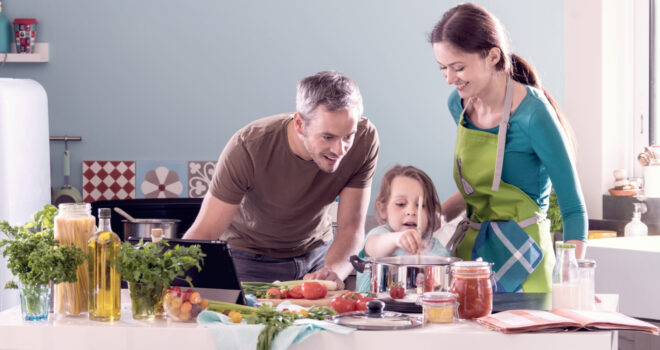Join us in Nantes, from 13 to 15 December, at the Journées Francophones de Nutrition. This year, the Organising Committee has withheld two projects that are related to the Louis Bonduelle Foundation’s scientific research. Time for an elevator pitch!
Over the course of a three-day conference, 2,000 nutrition professionals will meet to exchange ideas and contribute to advancing knowledge on such topics as sustainable nutrition, eating behaviour, diabetes, digestive psychology and much more.
And in a first, two research projects that received support from the Louis Bonduelle Foundation will be in the spotlight at this year’s Journées Francophones de Nutrition (JFN), namely:
- an academic project on food waste, in partnership with the Montpellier-based MOISA laboratory and
- EpicAlim, one of our own research projects, with our partner Epicurium, which measures the impact of awareness campaigns about legumes on children. This project has also been nominated in the “Best posters: 90-second presentation ” section!
You learn to eat vegetables by cooking them!
Which workshop inspires children between the ages of 6 and 12 years of age to eat vegetables the most? A culinary workshop, a gardening workshop or a fun exhibition? The EpicAlim study, conducted by Gauthier Peruchot, Laurence Depezay and Eloïse Castagna of the Louis Bonduelle Foundation, set out to compare the impact of these three types of workshops on the consumption of an unfamiliar pulse (the fava bean).
They conducted their observations at the Epicurium Living Museum of Fruit and Vegetables during various workshops, which were attended by 219 children from eight different primary schools. They either participated in a culinary activity with beans, gardened, or visited a fun exhibition.
After one hour of activity, just before their lunch, the children were simultaneously served a salad and a bean puree, in portions of 80 g, and were told they could eat as much as they wanted.
The study showed that cooking workshops are more successful in getting primary school children to eat an unfamiliar legume. This type of workshop has a positive effect, regardless of the level of neophobia, whereas gardening workshops have no impact whatsoever on the most neophobic children.
Find out more about the results during the poster session at the JFN!
Fighting food waste: synergies and contradictions
This study, which was conducted in partnership with UMR MOISA’s Regaal team, which is based in Montpellier, as well as with SupAgro and the Louis Bonduelle Foundation, examined the links between the recommendations of the Anti-Gaspi and “Mangez-Bougez” (anti-food waste and eat-exercise) campaigns of the Ministry of Agriculture and Food and the Ministry for Public Health respectively.
It focused more specifically on fruit and vegetables, which are the most cited products in these recommendations, but which also account for most of the food waste. This gave rise to a broader research question, namely how do the recommendations of the national nutrition and health programme (PNNS) and of the Anti-Waste campaign interact in daily life?
The researchers conducted interviews with 23 participants in and around Montpellier, demonstrating that promoting conviviality can lead to overconsumption (considered as a form of ingested waste in this context), satisfying a sense of “social satiation” and negatively influencing people’s assumptions about the amounts they eat.
The study also revealed that conviviality, by contrast, is linked to special attention to the food that is shared by people who eat at the same table. Finally, it also demonstrated that conviviality may inspire people to throw away food, in case of divergent tastes within a household. Conviviality, however, can also inspire people to exchange food (i.e., sharing one’s leftovers with other guests at the table) depending on how socially acceptable such a practice is.
Come join us at the poster session during the JFN!
Are you interested in food waste as a topic? Have a look at the summaries of the 2014 Louis Bonduelle Conference or download the monograph



 Bean sprouts
Bean sprouts  Fava beans
Fava beans  Vegetable garden: growing white beans
Vegetable garden: growing white beans 









